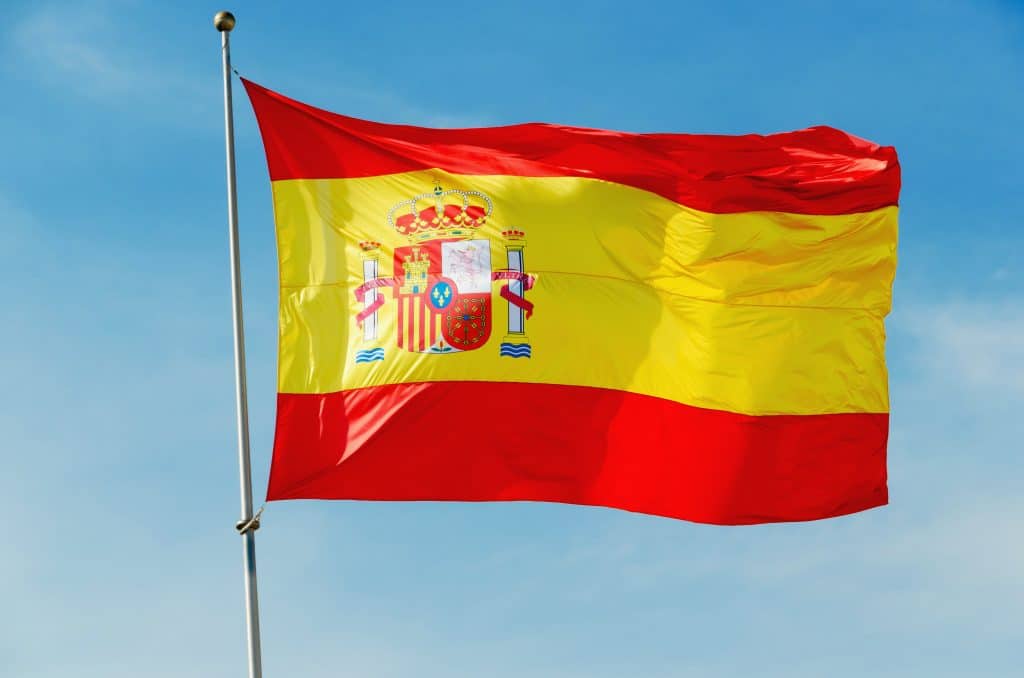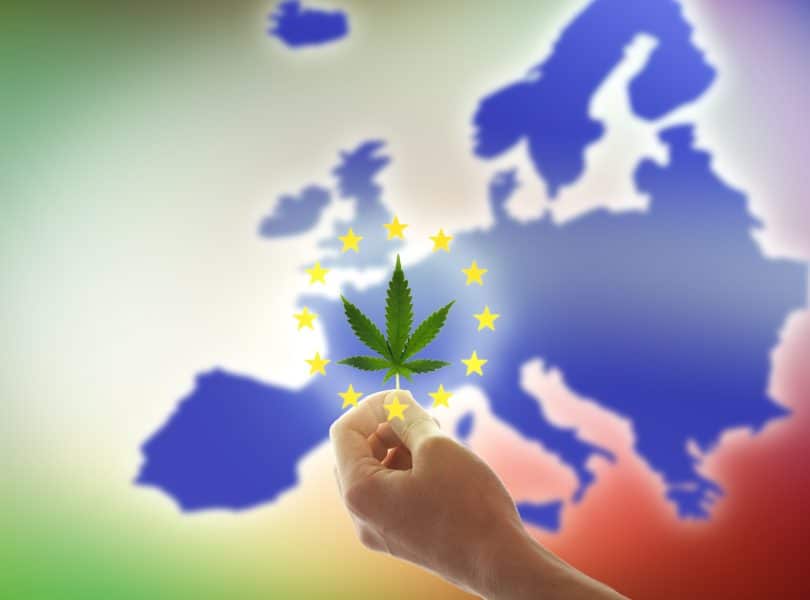In July 2022, top officials from three Europe countries met to discuss the future of legal cannabis in Europe. The meeting, which gathered government officials from Germany, Malta and the Netherlands in Luxembourg, was called to discuss how to approach the legalization of recreational cannabis in a complex market with a population of more than 530 million.
The European market is expected to gross more than 3 billion euro by 2025. However, as countries make moves towards legalization, key decisions need to be made about how to balance this emerging market with existing legal frameworks. Along with UN international treaties, one of the biggest obstacles is the Council Framework Decision 2004/757/JHA, which mandates that EU member states punish the production and sale of cannabis when committed “without right.”
Eventually, cannabis will be legalized across the Eurozone, but that can’t happen until countries are given a path forward that doesn’t put them in breach of international and EU laws. While some countries are eager to forge that path, others are lagging behind. Legalizing cannabis has various implications in different countries, as individual member states are at different stages of the legalization process.
To stay current on everything important happening in the industry, subscribe to The Cannadelics Weekly Newsletter. Also, it’ll get you premium access to deals on cannabis flowers, vapes, edibles, and much more! We’ve also got standout offers on cannabinoids, like HHC-O, Delta 8, Delta 9 THC, Delta-10 THC, THCO, THCV, THCP & HHC, which won’t kill your bank account. Head over to our “Best-of” lists to get these deals, and remember to enjoy responsibly!
An Overview of Cannabis Control in Europe
International law mandates control of cannabis plants and derivative products. In Europe, there may be permissions for medical (Germany, Italy) or industrial (France, Poland, Romania) use. Cannabis-based medicines can be permitted by EU or national authorization, but no EU country permits smoking cannabis for medical use.
When it comes to penalizing unauthorized cannabis use, there is no harmonization across the EU. Each country interprets the law in accordance with local policies, with penalties in place for use or supply. It tends to be the case that offences relating to supply incur heavier penalties. Evidence suggests that police tend to register cannabis users, rather than record “minor” offenses.
Some countries (Portugal) offer rehabilitation programs. Since 2000, the trend is to reduce maximum penalty for use-related offences, due to research, which does not show a consistent effect of penalty charges on use rates. In the U.K. police now issue an on the spot fine of 90BP. In Germany, it’s unlikely that possession of less than 6grams of cannabis will incur a penalty.
In recent years, the number of police raids on illegal grow ops has risen, as have raids on hemp farmers and health shops selling hemp-based products. In April 2022, police in Spain raided a farm in the north of the country, destroying 400,000 hemp plants, worth more than 100 million. Though cannabidiol (CBD) products are legal to consume in Spain and most EU countries, cultivation of hemp for CBD is banned in Spain, demonstrating the complexity of the law.
Overview of Europe’s Cannabis Market
Source: Prohibition Partners (PP)
- PP estimates that in 2022 an additional 100,000 patients will access cannabis in Europe, bringing the total number to more than 300,000.
- PP predicts that the sales of adult-use cannabis could reach 1.5 billion by 2026, dependent on the progress of Germany.
- PP projects that the sales of unlicensed cannabis medicines will grow to 2.3 billion by 2026.
- The German market saw an increase of 43% of cannabis sales to pharmacies in 2021.
- The U.K. market could make up a quarter of the European market by 2026, at a value of 544 million.
- North American cannabis operators remain heavily invested in Europe.
- At least 15 European countries now cultivate medical cannabis for commercial purposes.
In 2017, the European Monitoring Centre for Drugs and Drug Addiction (EMCDDA) reported that no national European government was in favor of legalizing cannabis. Five years on, that situation is changing. Today, Malta has legalized cannabis, and Germany is on the cusp of legalizing. The cannabis landscape in Europe is changing, as a robust marketplace emerges. Here are some of the countries least likely to legalize cannabis in the near future.
SPAIN
Though Spain is one of the main cultivators of cannabis in Europe, with both legal and illicit growers already supplying much of the continent, the country has an intricate relationship with cannabis. Along with Portugal and the Netherlands, Spain was one of the first EU countries to make some form of legal cannabis available to citizens through its cannabis social club model.

The first cannabis social club opened in Barcelona in 2000, and this paved the way for hundreds more clubs throughout the country, with the majority concentrated in Catalonia. However, though they originated as non-profit clubs to service the needs of local cannabis consumers, in the last five to ten years they’ve been infiltrated by Eastern European gangs. Today, they’re profit-run organizations that take advantage of legal loopholes. As a result, hundreds have been shut down.
Despite the attempt to make recreational cannabis available in Spain, medical cannabis remains illegal. The Spanish government hosted a committee in June of 2022 to rectify this situation by approving a new reform, expected to make medical cannabis available for certain conditions including cancer, pain, endometriosis, fibromyalgia and epilepsy by the end of the year.
Though this is a start, it’s also a restricted system, as only specialist doctors can prescribe it, and it will be made available through hospital pharmacies. According to Carola Perez, president of the Spanish Observatory for Medical Cannabis, it won’t have any immediate impact. “Most patients will still be forced to source their medicine via clubs, black market and home grow,” she said. She added, there’s still “much to do” to bring the Spanish market up to speed with other EU countries.
IRELAND
Ireland has one of the most restrictive medical cannabis access programs in Europe. In 2019, the Irish government launched the Medical Cannabis Access Programme (MCAP), making medical marijuana available to patients with certain conditions including multiple sclerosis, epilepsy and nausea associated with chemotherapy.
The purpose of the scheme is to give power to medical professionals to prescribe cannabis to patients in need. However, the system is not without its flaws, chiefly its cost, which makes it prohibitive for many patients. One such patient is Cork woman Alicia Maher who moved to Spain in 2019 to access cannabis to treat her chronic pain.
Maher does not qualify for the MCAP, as her condition doesn’t fall under its remit. Instead, her doctor can prescribe cannabis under ministerial license. However, she can’t afford to pay for cannabis there, as it’s not covered by her medical card.
The monthly cost of medical cannabis in Ireland is between 1,000 and 3,000.
Patients for Safe Access is an activist group in Ireland campaigning for access to medical cannabis on behalf of Irish patients. They’re calling for a reduction in the price of medical cannabis, and legislation to regulate the Irish cannabis marketplace. MCAP became fully operational in July 2021 but to date, only 12 patients have benefitted from the scheme.
When compared to markets such as Germany, where more than 120,000 patients qualify for medical cannabis, it shows how far Ireland has to go. Independent TD Gino Kenny of People Before Profits said, the current system is “not fit for purpose.” The Irish government has set up a committee to review the situation but it’s likely to be many years before any real change takes place.
SLOVAKIA
Slovakia has one of the strictest punishment regimes for cannabis in Europe. It is not permitted to produce, import or sell recreational cannabis, and breaches to this law are punishable in accordance with Slovak Criminal Code by three to ten years imprisonment.

Cultivation, importation or sales of cannabis for medical use is also prohibited. Cannabis can be grown for research purposes, but the cultivator must register with the Ministry for Health, and unused parts of the crop must be destroyed. For growing plants, punishment can be as harsh as 20 years.
It is possible to grow industrial hemp, however, the cultivator must show evidence that the crop is not being grown for use as a narcotic. In cases where evidence of industrial use cannot be shown, the cultivator can face jail time and fines of more than 30,000.
Penalties for cannabis use are so severe in Slovakia, the country’s European MEP Michal Simecka called for an investigation in September 2021. The EU Commissioner response was to point out that individual member states are responsible for drug law at country-level. Simecka said government infighting over how to bring about cannabis reform means that any reform is unlikely to be reached there in the near future.
Final Thoughts
It will be interesting to see how Europe tackles the challenge of cannabis legalization in coming years. Right now, all eyes are on Germany as its government ministers discuss the best way to move forward with legalizing recreational cannabis. It’s predicted that once cannabis legalizes in Germany, other countries across the EU will follow suit. It’s no longer so much a question of how, but rather a matter of when.
Welcome all! Thanks for dropping by Cannadelics.com, a top offering for comprehensive news covering the burgeoning cannabis and psychedelics industries. Stop by daily for a dose of news on these dynamically changing fields, and sign up for The Cannadelics Weekly Newsletter, so you’re up on everything important going on.









